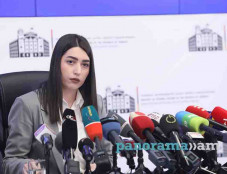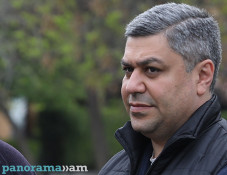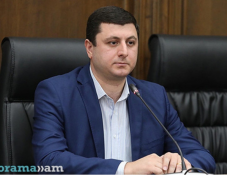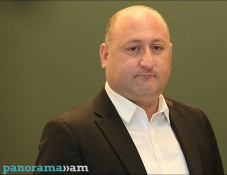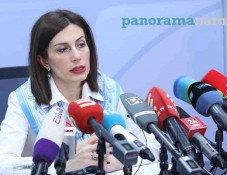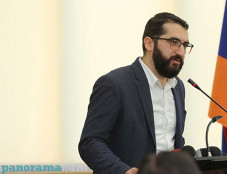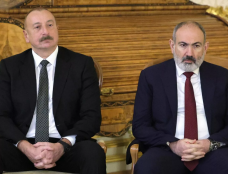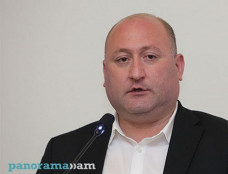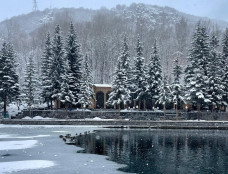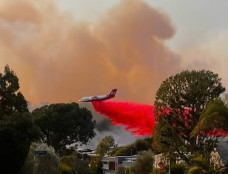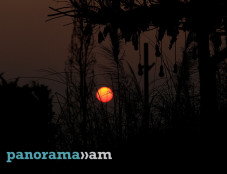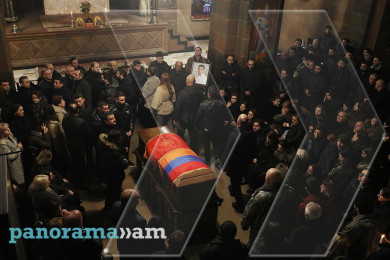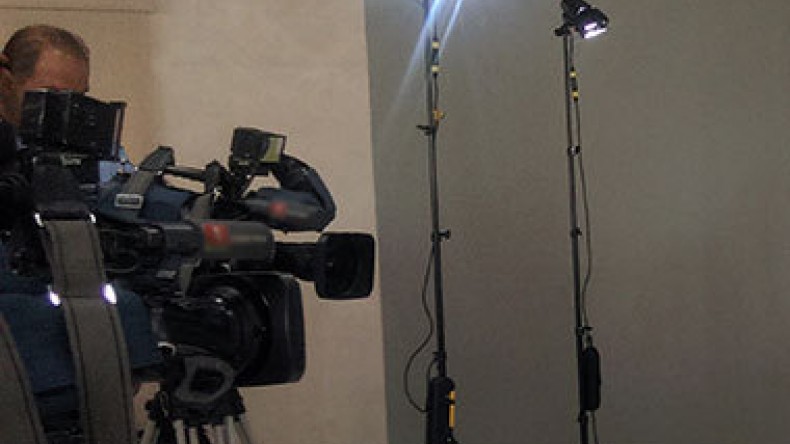
Expert: CEC of Azerbaijan sets too high broadcasting pricing to impede candidates showing on TV
Political campaign for the parliamentary elections kicks off today in Azerbaijan. According to the Election Code of the Republic of Azerbaijan, the electoral campaign of the candidates starts 23 days before the polling day and ends 24 hours before voting begins.
As for today, 1233 candidates are registered at the Central Election Commission of the country for the parliamentary elections scheduled on 1 November 2015.
Meanwhile, certain figures are not able to register their candidature. Vesti.az reports that Nasiman Yagublu, an Azerbaijani historian chairing the NGO Mammad Amin Rasulzade Center, appealed to Azerbaijan’s President Ilham Aliyev with a letter concerning the executive authorities’ denial to register his candidature. He writes that a campaign of persecution has been unleashed against him, and those voting for him are being intimidated.
According to Turan agency, the election commission of the 19th Narimanov first Baku okrug groundlessly refused to register the MP candidacy of Mubariz Rahimli, a REAL (Republican Alternative) movement activist. Rahimli submitted 550 signatures to the election commission of the okrug. However, the candidate and his representatives were not informed about the signature verification process. There is no mentioning about the reasons of the denial to register him in the document, REAL said in a statement.
The agency reports that the Central Election Commission has published the pricing of the political advertising. The Pubic TV (ITV), 2 online outlets, 18 newspapers and 22 information agencies offer paid platforms for election campaign.
According to Turan, ITV appears to offer the most expensive political campaign – one second will cost between 20 and 50 manats from 11:50 to prime time at 20:20, 18% VAT not included. The video must not exceed 5 minutes. Accordingly, a five-minute video during prime time will cost a candidate 17.700 manats (VAT included), which is a deputy’s yearly salary.
In the newspapers, one square centimeter of a campaign article will cost from 2 to 10 manats. The price is 2-4 manats for 1cm2 in the state-owned newspaper Azerbaijan, Yeni Musavat charges 2 manats. The pricing of the election campaign at the information agencies varies from 500 to 2000 manats depending on the symbol count and the place on the website. The public radio offers 7-25 manat election campaign depending on the duration of the broadcast.
According to the information portal Caucasian Knot, Alesker Mammadli, an independent media expert, said the ITV’s pricing policy pursues political aims. The purpose of setting high prices is making the air unaffordable for the candidates. “The minimum wage is 105 manats in Azerbaijan. Demanding 3450 manats for a minute of TV broadcast does not serve the public interest,” the expert said.
He believes the high prices intend to make it impossible to use the paid broadcasting. “Generally, the authorities’ entire policy intends not to let the candidates show on the TV. Out of the 10 public and 12 regional TV channels, only one public TV offered air for election campaign on a paying basis. And this happens when the TV channels would seem to be interested in using the elections for getting additional income, especially given that the economic crisis has cut the commercial advertisement,” the expert noted.
Hafiz Babali, a deputy candidate from REAL movement, also regretted about the high prices set for airing the candidates’ videos on the public TV. “This is certainly an astronomical and too heavy sum for many deputy candidates. This is why we prefer the ‘door-to-door’ approach to work directly with the citizens and get our campaign materials to each voter immediately. If we manage, we will also hang our banner on one of the big billboards in Sumgait,” Babali told the Caucasian Knot.
Turan reports that the Institute for Democratic Initiatives (IDI) published the findings of a media monitoring conducted ahead of the 1 November parliamentary elections. The monitoring aimed at revealing and telling the society how unbiased and fair are the online media, and whether they comply with the norms and standards.
The first report covers the monitoring of the state-owned agency Azertag, newspaper Azerbaijan, opposition newspaper Azadlig, websites Lenta.az, Contact.az and newspaper Yeni Musavat for the period from 1 to 30 September.
The programs relating the elections and capable of influencing the voters covered 37 hours 53 minutes of the 480 broadcasting hours during the prime time (7.93% of the total air). The information in favor of the authorities took up 35 hours. While there was no second in favor of the opposition, 6 minutes 2 seconds (0.26%) information was against it.
The monitoring of the printed an online media was conducted with the same principles and covered 512 publications. It found that 53% (151) of the articles favored the authorities and 22% (63) were against them. Only 6% (18) of the publications were unbiased. 13% (45 pieces of information) were in the opposition’s favor, and 2% (4 pieces of information) were against it. Meanwhile, 100% of the materials published by the agency Azertag was in the authorities’ favor. In Yeni Musavat, which is considered an opposition newspaper, 34% of the materials were in the authorities’ favor, and 7% were against them, 17% supported the opposition and 3% were against it. Another 9% of the materials in the newspaper were of neutral nature.
In total, the monitoring revealed lack of political pluralism and alternative opinions in the state-funded media, Turan writes.
Institute for Democratic Initiatives was founded in 2013 by a group of independent lawyers and is chaired by Akif Gurbanov. Despite Gurbanov being a member of the Central Election Commission, the Ministry of Justice refused to register the NGO, Turan notes.
Azerbaijan’s Parliamentary elections are scheduled on 1 November 2015. There were recent local reports about the authorities faking a growth of the number of “independent” candidates for the elections. The international agencies reportedly took up rather stern stance regarding the upcoming parliamentary elections. On 11 September 2015, Michael Georg Link, Director of the OSCE Office for Democratic Institutions and Human Rights (ODIHR), announced that, due to restrictions imposed by the Azerbaijani authorities, ODIHR had no choice but to cancel its mission to observe the country’s parliamentary elections. Earlier, ODIHR had reported about its intention to send 380 observers to Azerbaijan.
Newsfeed
Videos





